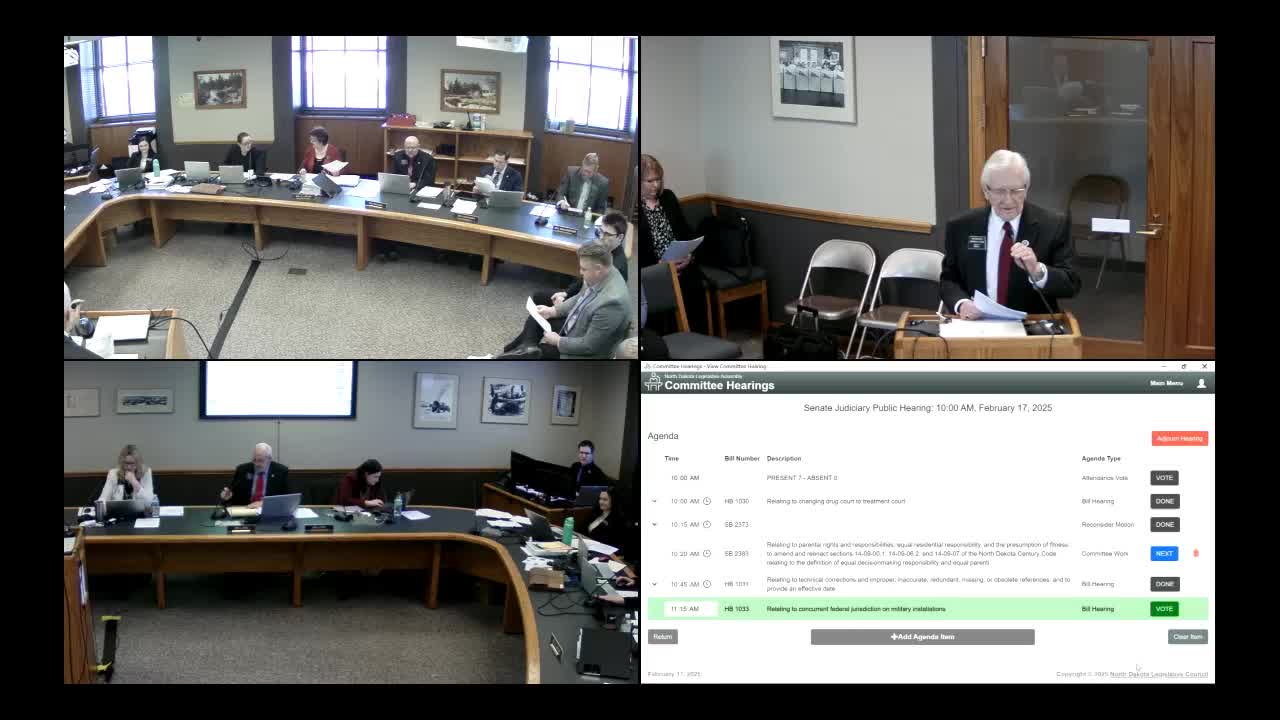Committee backs bill to permit concurrent juvenile jurisdiction negotiations with military installations
Get AI-powered insights, summaries, and transcripts
Subscribe
Summary
House Bill 1033 would authorize the state and federal government to negotiate concurrent jurisdiction for juvenile offenses on military installations; committee moved the bill forward after Department of Defense and state military supporters testified.
The Senate Judiciary Committee voted to recommend a do-pass on House Bill 1033, a measure that would enable the state to enter agreements with the federal government and military installations to provide state adjudication for juvenile offenses that occur on federal military lands.
Representative Lawrence Clameen, sponsor of the bill before the committee, said the measure is enabling legislation modeled on a Colorado law and would allow the state and federal government to enter an agreement for state handling of juvenile offenses committed on installations such as Minot Air Force Base and Grand Forks Air Force Base. “The bill does not require the state to do anything, but is enabling legislation where no such state authority currently exists,” Clameen said.
Samantha Slaney, regional liaison for the Department of Defense State Liaison Office, testified in support on behalf of the Department of Defense. She said that without concurrent jurisdiction, “there is a black hole for juvenile justice on federal installations,” because some lands are under exclusive federal jurisdiction and the federal system lacks a routine mechanism for prosecuting juvenile offenses. Slaney told the committee that the bill does not automatically confer concurrent jurisdiction; rather it permits negotiations and memoranda of understanding to define when and how juvenile cases could be processed in state juvenile court.
Jay Sheldon, strategy and policy officer for the North Dakota National Guard, said the North Dakota Military Commission and base leadership support the bill because adopting such policies can improve quality of life for military families and may factor in broader base-community considerations.
Committee members asked technical questions about how cases would be processed under memoranda of understanding, including whether transfers would require agreement by federal and state prosecutors or could be automatic depending on the memorandum. Slaney said memoranda can be written several ways: allowing all juvenile processing to move to the state, requiring agreement case-by-case, or otherwise defining the responsibilities of each party.
Senator Lewick moved a do-pass recommendation; Senator Paulson seconded. The committee recorded affirmative votes and the motion carried.
Ending: The committee chair agreed to carry the bill forward with a recommendation to pass. No opposition testimony was presented in committee.
